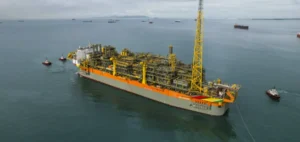The United States Department of the Treasury has announced a new round of sanctions targeting Iran’s energy sector. These measures focus on an international network of companies linked to Greek shipowner Antonios Margaritis, accused of facilitating the transport and sale of Iranian oil abroad. This move is part of a broader U.S. strategy to limit Iran’s oil revenues, seen as a key source of funding for its military programs.
The official statement indicates that Margaritis leveraged his maritime shipping experience to evade international regulations. According to the U.S. Treasury, multiple vessels operated by companies affiliated with the Greek businessman contributed to exporting Iranian oil to foreign markets, in violation of existing sanctions.
Logistical Network Spanning Multiple Jurisdictions
Nine companies based in Greece, Hong Kong, the Marshall Islands, and the United Arab Emirates are listed among the sanctioned entities. Twelve vessels, several of which operate under flags of convenience, are also targeted. This registration practice, common in the maritime industry, complicates the identification of actual operators and hinders the enforcement of international sanctions.
Among the designated companies is Changbai Glory Shipping Limited, registered in the Marshall Islands. One of its Liberian-flagged vessels reportedly transported over four million barrels of Iranian oil to China between March and August 2025, according to U.S. authorities.
Geopolitical Implications for Asian Oil Flows
China remains the leading importer of Iranian oil, despite restrictions imposed by the United States. By targeting logistical intermediaries rather than final buyers, Washington aims to disrupt distribution channels without triggering direct commercial tensions with Beijing.
This new wave of sanctions follows a ceasefire brokered in June between Iran and Israel, backed by the United States. Although regional stability remains uncertain, the latest measures reflect Washington’s intent to continue exerting economic pressure on Iran outside of direct military action.






















